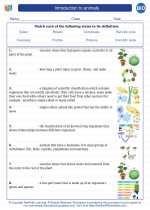Nuclear Fission
Nuclear fission is a nuclear reaction in which the nucleus of an atom splits into smaller parts. This process releases a large amount of energy and is the principle behind nuclear power plants and nuclear weapons.
Process of Nuclear Fission
During nuclear fission, a heavy atomic nucleus, such as that of uranium-235 or plutonium-239, absorbs a neutron and becomes unstable. The nucleus then splits into two or more smaller nuclei, along with the release of additional neutrons and a large amount of energy in the form of gamma rays and kinetic energy.
Applications of Nuclear Fission
Nuclear fission is used in nuclear power plants to generate electricity. The heat produced during fission is used to produce steam, which drives a turbine to generate electricity. Additionally, nuclear fission has been used in the development of nuclear weapons.
Study Guide
- Explain the process of nuclear fission.
- Describe the applications of nuclear fission.
- Discuss the environmental and safety concerns associated with nuclear fission.
- Compare and contrast nuclear fission with nuclear fusion.
- Examine the role of nuclear fission in the context of energy production and global energy needs.
◂Biology Worksheets and Study Guides High School. Introduction to animals
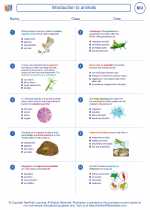
 Worksheet/Answer key
Worksheet/Answer key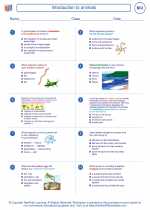
 Worksheet/Answer key
Worksheet/Answer key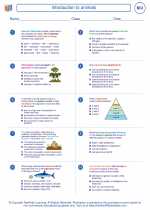
 Worksheet/Answer key
Worksheet/Answer key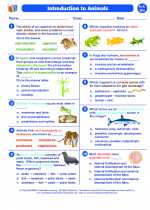
 Vocabulary/Answer key
Vocabulary/Answer key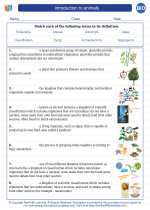
 Vocabulary/Answer key
Vocabulary/Answer key
 Vocabulary/Answer key
Vocabulary/Answer key